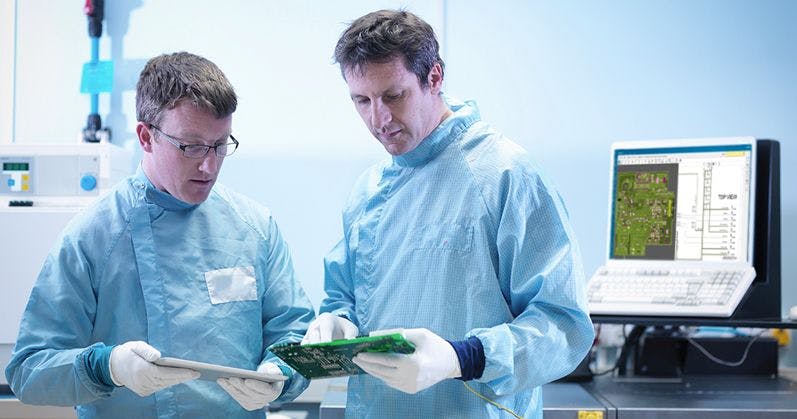The use of manufacturing software is very specific to the industry in which it is applied. In the electronics industry, processes vary from highly automated, equipment-centric SMT/PCBA to medium or low automation at THT or final assembly operations. Many different software systems are often used on the shop floor, resulting in inefficiencies for the operators, engineers, and plant managers. As the workforce relies on personalized user experience and guided navigation at the point of use to execute tasks efficiently and reduce task time, continuous product and process improvement is achieved.
With our new functionalities, electronics manufacturers can now ensure that quality and efficiency are built into the production process.
Revolutionizing user experience for electronics manufacturers through role-based, low-code apps, enabled through the industry-leading Mendix platform
We unleash the power of Mendix by combining our MES, Opcenter Execution, with role-based, fully customizable user interfaces. This makes our solution not only role-based but also industry-specific and process-centric. Customers can take ownership of personalization and leverage low code to map processes perfectly or even harmonize their end-to-end solutions, empowering their competitive position.
With this solution, the workforce comfort is optimized, the MES is easy to adapt, and the personalization is owned by the customer.
Key Takeaways
- Review why and how Siemens is enabling role-based UX
- Discover how to enable personalization on UX
- Examine how this technology supports shop floor automation from UX
- Learn how this solution enables standard-based templates help with UX
- Understand how this platform incorporates data from multiple systems into a single pane UX to make it easy and efficient for the user (composite app)
Meet the speakers

Silvio Saouaf
Head of Product Management, Opcenter Execution Core
Silvio Saouaf is the head of product management for Opcenter Execution Core, a Siemens business and leading manufacturing execution system (MES) for the life sciences, electronics, semiconductor and battery manufacturing industries. He has been part of Siemens since the acquisition of Camstar Systems in 2014. Silvio has held many positions in Camstar and Siemens, including services lead consultant, project manager, quality assurance manager, technical sales consultant and most recently, head of product management. He holds a master’s degree in electrical engineering and is a member of a number of academic honor societies. Throughout his 25+ years working with manufacturers, he has worked with many leading companies, both at a project and product level. Silvio is also a member of several professional societies, including the Association for Supply Chain Management (APICS) and the Institute of Electrical and Electronics (IEEE).

Frank Schaldach
Industry Manager, Electronics and Semiconductor
Frank Schaldach is responsible for running the business enablement and development activities for the Siemens digital manufacturing portfolio Electronics and Semiconductor. He holds a master's degree in Electrical Engineering and can look back on a career as a microelectronics development engineer and CAE/CAD systems application engineer. He has 20+ years of electronics industry experience at Siemens holding different pre-sales, post-sales, and project management roles.

Markus Sauter
Product Manager, High Tech Electronics
Markus Sauter is the Product Manager for Opcenter Execution Electronics in the Siemens DI SW DM TO&MOM Segment, located in Lindau / Germany. He studied Electronics with the focal point of Process Automation. Markus has more than 25 years of experience in the electronics industry including product development and design, production engineering, and production execution. During this time, he gained extensive knowledge of the broader DI SW portfolio as well as of the electronics industry.
